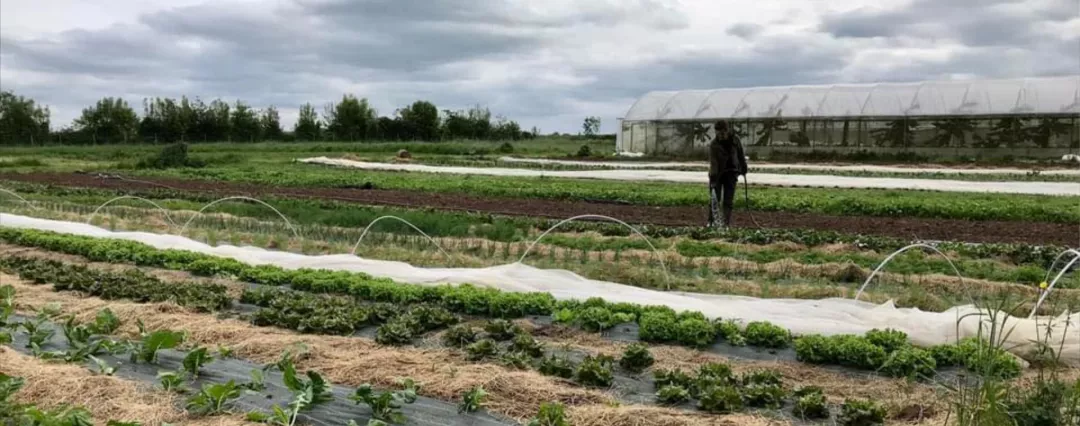General information
RDP Priority
- P2. Competitiveness
RDP Focus Area
- 2B: Entry of skilled/younger farmers
RDP Measure
- M06: Farm & business development
Beneficiary type
- Young farmer
Summary
Two young farmers established a farm dedicated to organic arboriculture and market gardening in the Normandy Region. Thanks to support from the European Agricultural Fund for Rural Development (EAFRD), they built a large polytunnel to grow vegetables and installed protective nets and fences around crops to protect the crops from animals. They also developed cultural and pedagogical activities to promote local organic products and cultural diversity in the area.
Results
- The Tormellier Gardens sell their products locally through a community-supported agricultural system.
- Thanks to the EAFRD investment, the young farmers were able to organise a cultural and creative festival on their site, offering music concerts, theatre performances, and cooking activities that use vegetables produced on the farm.

Promoter
Les jardins du Tormellier
Funding
Total budget: 150 000 (EUR)
EAFRD: 13 030 (EUR)
National/Regional: 13 030 (EUR)
Private/own: 123 940 (EUR)
Ressources
Documents
Context
In 2017-2018, two young farmers, Marine Benard and Morgane Dumesnil, decided to establish their own organic farm in St Pierre de Cormeilles, in the Normandy Region. The five hectares of land they selected had never before been used for agriculture. Thus, before being able to launch the farming activity, it was necessary for them to set up an irrigation system and a polytunnel for vegetable production. To fund this, the two farmers contacted their region’s Chamber of Agriculture, which was able to help them apply for support from the Rural Development Programme (RDP) of Normandy.
Objectives
The objectives of this RDP project were to:
- establish an organic farm which would be economically viable and respectful of the environment.
- create a local dynamic around their agricultural activity, by launching social and cultural initiatives.
Activities
Project activities included:
- setting up a 1 200 m² polytunnel to reduce the impact of temperature fluctuations and secure production throughout the year.
- installing protective nets and fences around the crops to avoid them being eaten by animals such as deer.
Main results
The project led to several results:
- The Tormellier Gardens are now successfully running organic market gardening and arboriculture. Their products are sold locally through a community-supported agricultural system.
- Following this investment, and outside of the scope of the EAFRD, the farmers also developed cultural and pedagogical activities to promote local organic products and support cultural diversity within their local community. Since they started the farm, they have organised a cultural and creative festival on their site that featured music concerts, theatre performances, and cooking activities using vegetables produced on the farm.
Key lessons
- Funding from the CAP is one of the main sources of public finance supporting the expansion of organic land for EU countries.
- The size of the polytunnel, which is comparatively large, means that the farmers avoid losing crop surface. In smaller polytunnels, it can be difficult to plant vegetables at the edges, which can lead to a loss of about 20% of the cultivation surface in the polytunnel.
- Before launching a farming activity it is important for new farmers to acquire the necessary technical and business skills to carry out agricultural activity at the professional level and identify new market opportunities that can grow the business.
- Moreover, it is important to look for ways to diversify activities to ensure multiple sources of income, (e.g., through cultural activities or agritourism) and to develop the farm’s relationship with its local consumers.
Tunnel farming is a huge gain of time and energy for organic market gardeners and ensures an economically viable activity in the long-term, while preserving biodiversity.
